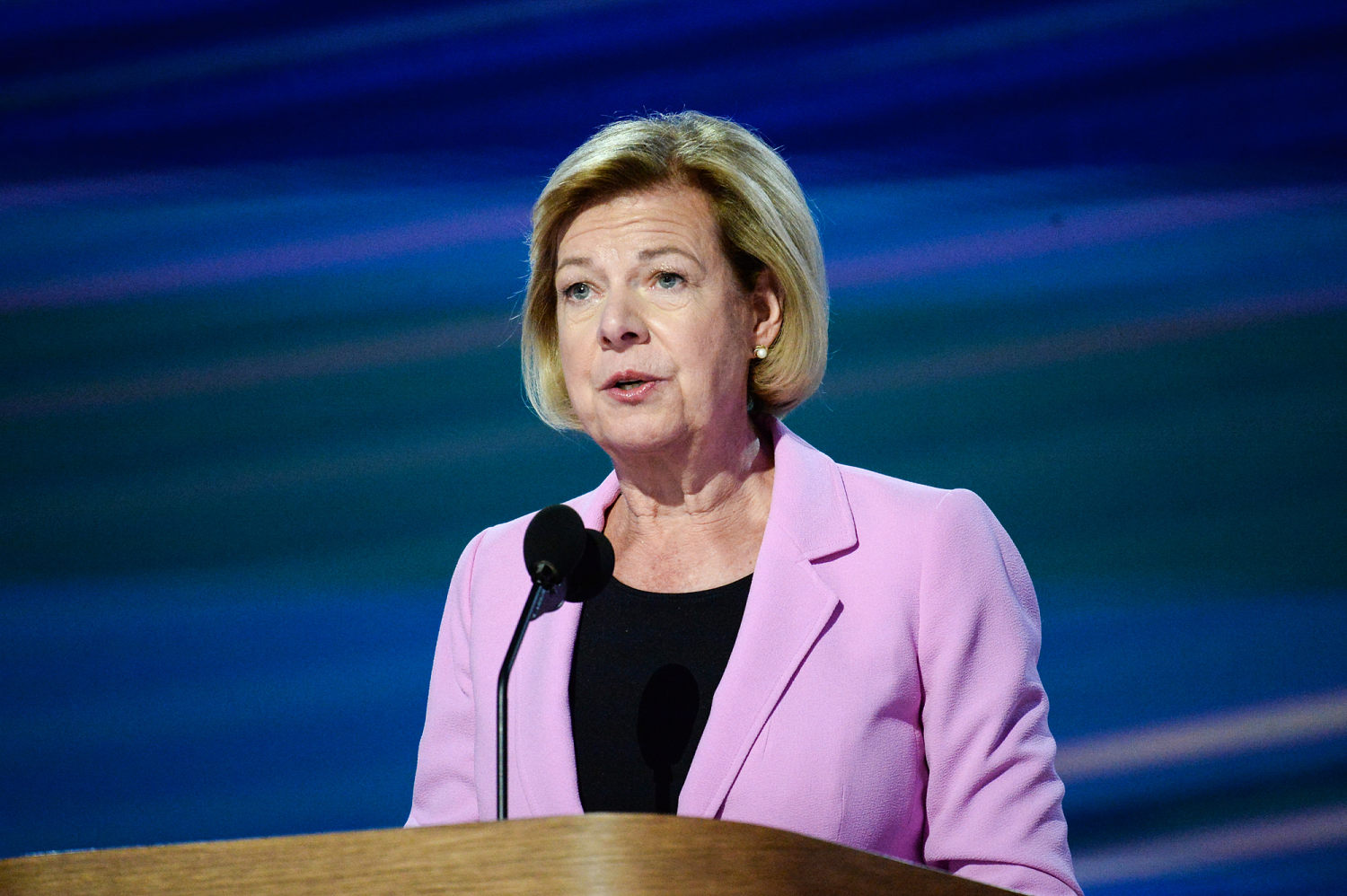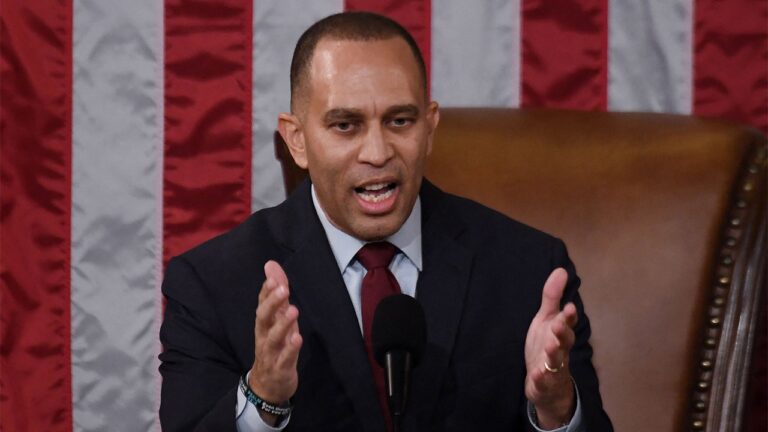
Fourteen Democratic senators will introduce an amendment Monday evening to remove language from Congress’ massive defense spending bill that seeks to ban coverage of gender-affirming care for transgender children of service members, the office of Sen. Tammy Baldwin, D-Wis., told NBC News.
The 1,800-page National Defense Authorization Act, or NDAA, passed the House last week by a vote of 281-140, with 200 Republicans and 81 Democrats voting “yes,” and 124 Democrats and 16 Republicans voting “no.” The $895 billion bill authorizes the annual budget for the Defense Department and sets defense policies for the upcoming year.
The group of 14 senators, led by Baldwin — who will be the Senate’s sole LGBTQ member in the new term — is seeking to remove a provision tucked into the bill that would prohibit “medical treatment for military dependents under the age of 18 who are diagnosed with gender dysphoria” under the military’s health care program, Tricare.
“Let’s be clear: we’re talking about parents who are in uniform serving our country who have earned the right to make the best decisions for their families. I trust our servicemembers and their doctors to make the best healthcare decisions for their kids, not politicians,” Baldwin said in a statement. “Our amendment would protect military families’ right to make their own decisions and access sometimes lifesaving care for their children.”
House Speaker Mike Johnson, R-La., pushed publicly and behind the scenes for the provision to be added into the defense spending bill, which was negotiated by senior House and Senate leaders from both parties. In a statement following the House vote last week, Johnson said the legislation prioritizes “military lethality, not radical woke ideology. This legislation permanently bans transgender treatment for minors, prohibits critical race theory in military academies, ends the DEI bureaucracy, and combats antisemitism.”
If the amendment remains in the NDAA, it would mark one of the first times Congress passed a federal statute directed at trans people. President Joe Biden will either sign or veto the bill if it passes the Senate, which is scheduled to vote on it this week before leaving Washington for the rest of the year; the NDAA must pass before Jan. 1.
A draft of a media release shared with NBC News — and scheduled to be made public Monday evening — from Baldwin’s office said that if the transgender health care provision survives, it could affect 6,000 to 7,000 children of U.S. service members. Modern Military Association of America, an organization that advocates for LGBTQ members of the military and veterans, estimates that there are roughly 10,000 trans youths between 6 and 22 with parents who are active military.
In recent weeks, Congress has repeatedly quarreled over the rights of transgender people, who make up just 0.5% of all Americans above age 18, according to the Williams Institute. With the election of Congress’ first transgender member, Rep.-elect Sarah McBride, D- Del., House Republicans have introduced a measure to bar trans people from using bathrooms that align with their gender identities in the Capitol complex. Some Democrats have also been fighting with one another over whether the party’s stance on trans rights played a role in Vice President Kamala Harris’ election loss.
The amendment to remove the trans health provision from the defense bill will be co-sponsored by Democratic Sens. Elizabeth Warren and Ed Markey of Massachusetts, Brian Schatz and Mazie Hirono of Hawaii, Jeff Merkley of Oregon, Cory Booker and Andy Kim of New Jersey, Dick Durbin of Illinois, Patty Murray of Washington, Chris Van Hollen of Maryland, Tina Smith of Minnesota, Sheldon Whitehouse of Rhode Island, and Chris Murphy of Connecticut, according to a statement from Baldwin’s office.
Speaking on the Senate floor Monday night, Majority Leader Chuck Schumer, D-N.Y., said he hopes the upper chamber can “find a path to pass an NDAA as soon as tomorrow.”
“This year’s NDAA is not a perfect bill, but it nonetheless has some very good things that Democrats fought hard for that will strengthen military families and boost tech innovation here at home, something very important to me,” he said.
Schumer didn’t mention the transgender health care provision specifically, but he added that the bill “has some bad provisions Democrats would not have included.”













